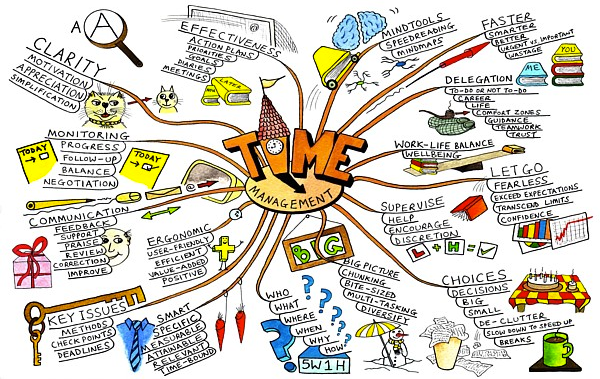The work done by a person in a given amount of time is proportional to the time and energy they have, if you hold their ability level constant. What this means is that in order to maximize your capacity, you need to find ways to increase the amounts of time and energy that you have. The commonly used phrase “Time Management” should actually be referred to as “Time and Energy Management,” since both are important in order to get results.
Both time and energy are critical to be successful in completing your projects at a rapid pace. If you have no time, then you cannot do a good job on an assignment even if you just drank two cans of Monster and are completely in the zone. If you have no energy, then the amount of work done is still very low because you cannot think and function at your best level.
Time and Energy Management is allocating your hardest, most time-consuming assignments to the time where you have the most energy. This approach is useful, but is often difficult to implement. For instance, we often do assignments at the last minute. This may be due to either overload, or poor time and energy management. If you sleep late one night, avoid sleeping late the next night at all costs, since this leads directly to a vicious sleeping cycle (sleeping late every day). It is often possible to recover from one all-nighter in a week if you sleep as early as possible for several consecutive nights.
One way to implement time and energy management is by understanding your own energy levels during the day. For instance, my energy levels are at their peak a few hours after I wake up. When I get back from class, my energy level decreases until I go to bed. Therefore, I will take on my toughest assignments between classes during the day. By doing this, I can delegate enough time and energy to complete them thoroughly. After this, I then finish the next hardest assignment, and so on until the easiest one. This method enables me to finish my hardest assignments faster, thereby allowing me to sleep earlier. If I did the assignments the other way (easiest to hardest), then I would probably not get them done as quickly. For a night owl, or someone who does their best work late at night and early in the morning, progressing from easiest to hardest would be best because it would allocate the hardest assignment to the time where they had the most energy.
If your energy levels are consistently low over several days, you can follow several strategies to get them back up again. First, you can increase the amount of sleep you get. Next, you can try eating healthy foods such as fresh fruits and vegetables. Another option is a quick workout at the gym. Regardless of the option that you choose, you should ensure that you get your energy levels back up.
I hope that you have found my advice on time and energy management useful. Remember that both time and energy are necessary to get work done, and that it is important to use your periods of peak energy to complete the toughest assignments. While different approaches may work for different people, avoid pulling more than one all-nighter in a row at all costs, no matter what type of person you are.































